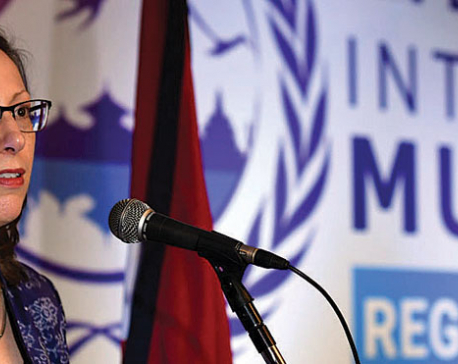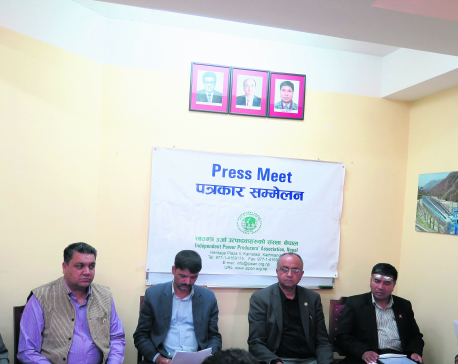
OR
Concern over shrinking civic space mounts as govt moves to stifle dissent
Published On: July 26, 2018 08:15 AM NPT By: Republica | @RepublicaNepal
KATHMANDU, July 26: As the government comes up with a slew of measures including declaration of various areas in the capital city as prohibited zones, there are growing concerns within civil society that they are bent on curbing civic space — something very vital in a healthy democracy.
Civil society leaders and rights experts said there is genuine fear that civic space is shrinking lately, especially after the new government came into power. While many localities that protesters used as their platforms for voicing grievances and concerns have now been declared prohibited zones, the authorities appear to be using excessive force to contain any such dissent in the streets.
There is also increasing concern that the authorities had been using all machineries at their disposal to discredit civil society leaders who voice their dissent, labeling them as cadres of one party or the other. “This is something all civil society leaders and activists have felt of late. The state has created an environment to discourage people from venting their dissatisfaction in the streets. The situation is no different in social medial platforms,” said civil society leader Charan Prasain.
Prasain argued that while police have used excessive force to discourage protests in the streets, pro-government activists hound those raising differing voices on social media platforms. “There are clear indications that the current government is bent on stifling civic space and ruling the country through coercive measures. One gets the impression that the current government is taking the country along the path of a sort of guided democracy,” he alleged.
In the recent case of Jumla, the authorities used excessive force in the hospital where Dr Govinda KC was on a fast-unto-death, and against doctors, nurses and nursing students showing their solidarity with him in a peaceful manner. Ruling party leaders also used all possible means to discredit Dr KC and his demands for reform in the medical sector in Nepal.
Civil society activist Bishnu Sapkota said there is a feeling among the masses that the current government is bent on containing dissent through coercive measures.
“It is the duty of the state in a democratic country to facilitate the role of civil society. But there is a feeling among civil society that this government is bent on shrinking the civic space,” he said.
Sapkota feels that there is a double standard among ruling parties in their approach to the importance of civic space. “They seem to have the attitude that freedoms of association and expression are things that are necessary only for political parties and not for ordinary people,” he said.
Civil society leaders complain that although the constitution has embraced pluralism, political leaders and cadres have failed to assimilate the spirit of pluralism. “There is a tendency among political party leaders and cadres to label civil society leaders who take their side as right and demonize them if they take other positions. Our ability to judge things on merit is almost dead,” said one civil society leader asking not to be named.
You May Like This

Shrinking civic space in Nepal is worrying: US envoy
KATHMANDU, Aug 1: US Ambassador to Nepal Alaina B Teplitz has expressed concern over the shrinking civic space in Nepal in... Read More...

Govt brings back environment fee lifted by K P Oli govt
KATHMANDU, April 4: A one percent fee that was being charged separately for environment services for hydropower project companies lifted by... Read More...

New govt should follow course set by incumbent govt: PM Oli
KATHMANDU, July 30: Prime Minister KP Sharma Oli has said the next government was expected to follow the course set... Read More...





Just In
- CM Kandel requests Finance Minister Pun to put Karnali province in priority in upcoming budget
- Australia reduces TR visa age limit and duration as it implements stricter regulations for foreign students
- Govt aims to surpass Rs 10 trillion GDP mark in next five years
- Govt appoints 77 Liaison Officers for mountain climbing management for spring season
- EC decides to permit public vehicles to operate freely on day of by-election
- Fugitive arrested after 26 years
- Indian Potash Ltd secures contract to bring 30,000 tons of urea within 107 days
- CAN adds four players to squad for T20 series against West Indies 'A'













Leave A Comment